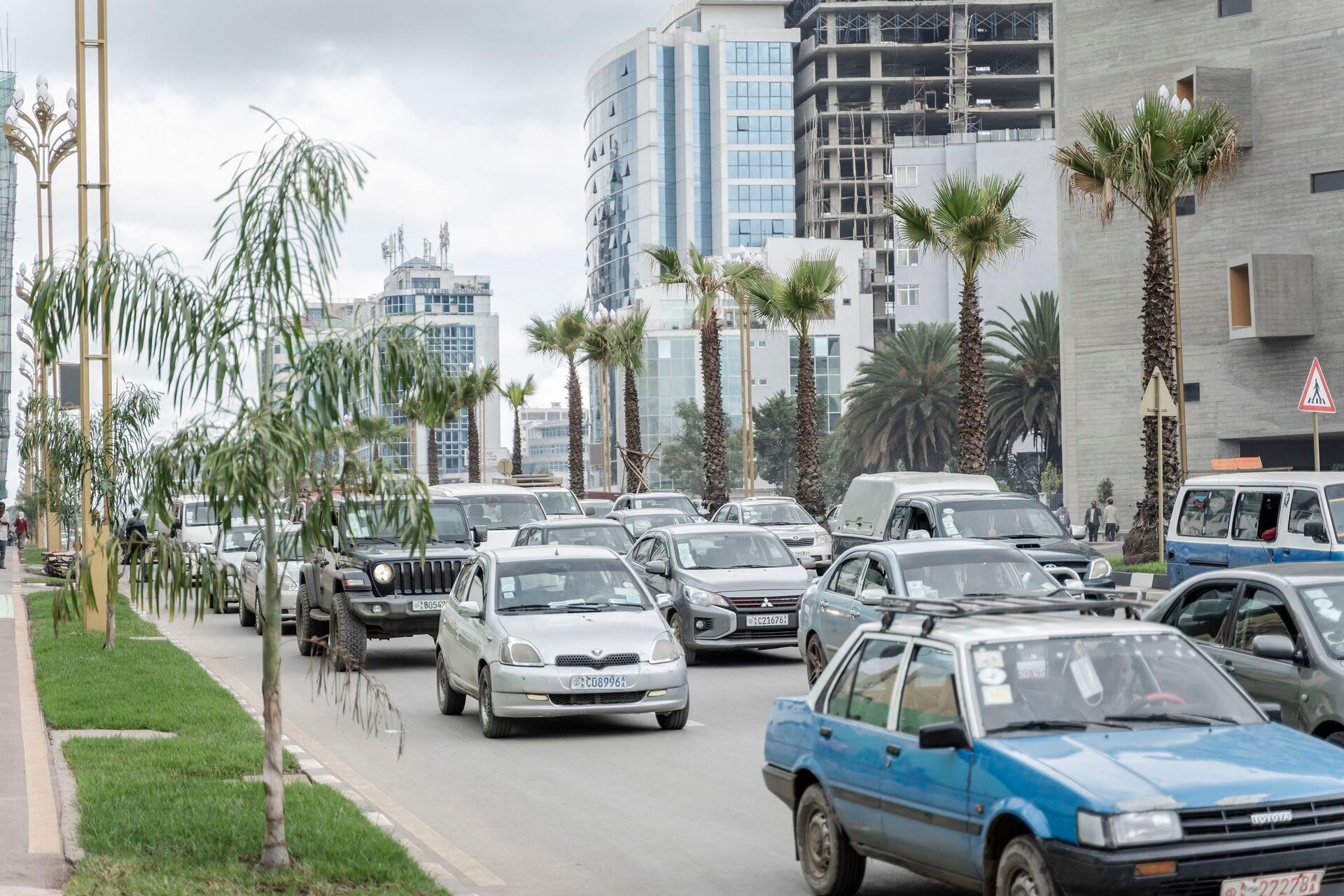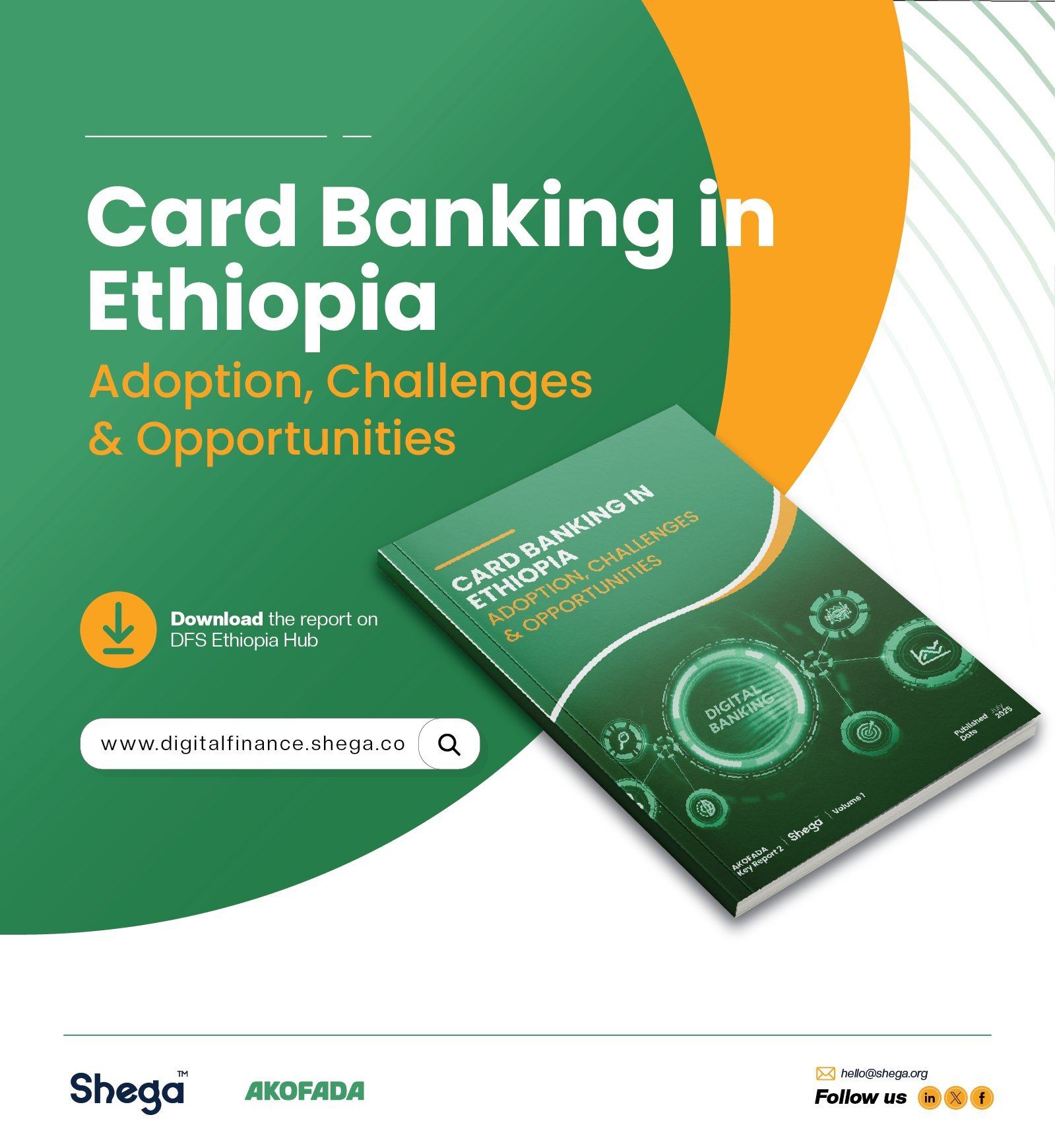
242 fresh minds just joined Shega Weekly since last weekend! That brings our community to 34,448 people turning information and insights into decisive moves across Ethiopia and Africa. Got this via a forward? Jump in
Top Stories of the Week
Transport Ministry May Remove Old Vehicles from Ethiopia’s Roads
Prosecutors Drop All Charges Against Websprix CEO Dawit Birhanu
NBE Blacklists Four U.S. Remittance Firms, Advises Diaspora to Use Licensed Channels
Ghana Threatens to Suspend MultiChoice Over High Prices
Premier Switch Solutions Secures Visa AVP Status, Unlocks International Markets
Shega is an integrated information, data & intelligence solution provider. We combine trusted media, proprietary datasets, and AI-powered insight to help businesses, investors, and policymakers decode complex markets like Ethiopia and act with confidence.
Tap into our research briefs, interactive data tools, and tailored advice to turn signals into strategy, or partner with us for high-impact audience-engagement campaigns. Let’s explore what we can build together.
Transport Ministry May Remove Old Vehicles from Ethiopia’s Roads
Old cars and trucks may soon be forced off Ethiopia’s roads as a new directive from the Ministry of Transport and Logistics empowers the government to permanently suspend the operation of vehicles that fail to comply with newly set greenhouse gas emission standards.
The ‘Directive on Vehicle Emission Pollutant Control’ entails a barrage of administrative consequences for vehicles that fail to meet the standards within a set grace period, eventually ending in permanent suspension.
Ministry officials convened with public and private sector stakeholders last Friday to provide an overview of how the implementation of the directive will proceed. Read more.
Hibret Bank Taps Afreximbank’s $1 Billion Ethiopia Facility in Early Deal
Hibret Bank has renewed a $50 million trade finance facility with the African Export–Import Bank, becoming one of the first commercial lenders to act on Afreximbank’s call for Ethiopian banks to tap into a newly announced one billion US dollar funding envelope. Read more.
Prosecutors Drop All Charges Against Websprix CEO Dawit Birhanu

After seven months in detention, WebSprix CEO Dawit Birhanu has been released from Aba Samuel Prison after prosecutors dropped all criminal charges.
The case, which has roots in an investigative audit by Ethiopia’s Ministry of Revenue, alleged unpaid taxes and included customs duties on software.
WebSprix disputed the findings, arguing that the audit was flawed and that software licenses are not subject to customs duty under Ethiopian law. A letter from the Ministry of Finance laid to rest the dispute around customs law on software imports. Read more.
Creative Hub Reopens Its Doors at Century-Old Post Office Building in Addis Ababa
Creative Hub Ethiopia has reopened inside the restored Arada Post Office, offering young entrepreneurs and creators access to maker tools, exhibition spaces, mentorship, and market linkages. Read more.
NBE Blacklists Four U.S. Remittance Firms, Advises Diaspora to Use Licensed Channels
The National Bank of Ethiopia has issued a stern warning to Ethiopians residing abroad about using unlicensed money transfer operators.
In a press release published on Saturday, the NBE named four firms Shgey Money Transfer, Adulis Money Transfer, Ramada Pay (Kaah), and TAAJ Money Transfer, operating in U.S. cities including Silver Spring, Falls Church, and Minneapolis, as unauthorized and involved in activities that “gravely compromise the integrity of Ethiopia’s financial system.”
The NBE alleges these firms are engaged in money laundering and the financing of illicit operations, warning that any funds sent through such channels risk confiscation. Read more.
A Community-Led Push for EdTech Community Collaborations in Ethiopia
Ethiopia has a 5-year Digital Education Strategy. But internet penetration is <30%, access is uneven, and cultural barriers remain. Grassroots initiatives like the EdTech Meetup are closing that gap. Read more.
Looking for unbiased, fact-based news? Join 1440 today.
Join over 4 million Americans who start their day with 1440 – your daily digest for unbiased, fact-centric news. From politics to sports, we cover it all by analyzing over 100 sources. Our concise, 5-minute read lands in your inbox each morning at no cost. Experience news without the noise; let 1440 help you make up your own mind. Sign up now and invite your friends and family to be part of the informed.
What’s on Our Mind
Most Ethiopian households see their expenses spike in August and September. Taxes, school fees, insurance premiums, and permits that require annual renewal all come due in the final months of the Ethiopian calendar. But this year, families already on shoestring budgets may be facing their hardest stretch yet.
In a year marked by the sharp depreciation of the Ethiopian Birr, inflation remains at double digits. The prices of grocery items keep rising, albeit at a slower rate than the previous year, while fixed incomes have remained frozen for most. Ethiopia’s economic stewards, under the counsel of the Bretton Woods institutions, have prescribed austerity to address the country’s fiscal and monetary troubles. Most households are feeling the side effects.
While many of the International Monetary Fund’s performance targets may read like sensible cures for a struggling economy, their human costs are equally clear. A Human Rights Watch review of IMF programs in 39 countries found that poorly sequenced austerity, a wave of indirect taxes, and the downgrading of social spending floors from binding requirements to mere guidelines fueled public resentment and deepened deprivation for millions. Fiscal consolidation, often achieved through steep spending cuts and regressive taxation, has been linked to greater inequality, declining wage income, and violations of basic rights.
The IMF’s latest review of Ethiopia’s program praises performance largely on the basis of what it chooses to measure. Ethiopia’s policymakers might remember that their lenders are not their electorate and that history has shown how even the price of bread, when pushed beyond reach, can ignite far more than economic discontent.
Digital Financial Services Ecosystem Survey
As part of the AKOFADA Project’s mission to strengthen Ethiopia’s digital financial services ecosystem, we are conducting a short survey to gather insights from users and ecosystem players alike.
Whether you're a fintech innovator, policymaker, service provider, or an everyday user of digital financial tools, your perspective matters.
We want to understand what new use cases, features, products, or services you would like to see in Ethiopia’s digital finance landscape. Your input will directly inform future AKOFADA Use Case Reports, helping us spotlight innovations that are practical, inclusive, and impactful. Thank you for taking a few minutes to share your thoughts on digital finance services in Ethiopia. Fill Survey.
Financial Institutions Meet Only 2pct of Agriculture Credit Demand
Ethiopia’s financial institutions meet only two percent of the estimated 2.5 trillion Birr in annual credit demand from the agriculture sector. Banks and microfinance institutions (MFIs) disbursed just 52 billion Birr in loans to the sector in 2024, far less than the total demand. Read more.
Ghana Threatens to Suspend MultiChoice Over High Prices

Ghana’s ICT ministry has instructed the National Communications Authority (NCA) to suspend DStv’s broadcasting license on 7 August if the company does not reduce its subscription prices, Ghana Broadcasting Corporation reported.
Communications minister Samuel Nartey George emphasized that his fidelity lies with the Ghanaian people, who he believes have been exploited for too long, and directed the NCA to suspend DStv’s broadcasting license if the Multichoice-owned broadcaster does not comply with the price reduction. Read more.
Opinion — It’s Not Just Rates, It’s Roots: Inside the Psychology of Ethiopian Diaspora Remittances
Remittances from the Ethiopian diaspora remain heavily informal. According to Eyasu Theodros, a U.S.-licensed financial advisor, this isn’t due to ignorance, and not always because of cost. Rather, it’s because trust has long been personal, not institutional.
“For many Ethiopians abroad, especially those who migrated under precarious or undocumented circumstances, “formal” doesn’t always mean “safe.” Sending money through a bank implies visibility, and visibility can feel like risk. Whether it’s fear of immigration scrutiny, taxation, or institutional mismanagement, choosing to stay informal can feel like self-protection,” argues Eyasu.
Premier Switch Solutions Secures Visa AVP Status, Unlocks International Markets

Premier Switch Solutions (PSS), an Ethiopian banking technology provider, has achieved a significant milestone by becoming the fourth company in East Africa to join the Visa Approved Vendor Program (AVP).
The certification recognizes PSS to produce, personalize, provision, and manage payment cards on behalf of Visa-issuing banks and financial institutions, positioning the company to compete in both local and international markets. Read more.
The High Cost of Free Books: Digital Piracy and Ethiopia’s Literary Economy
Authors once embraced e-books and audiobooks as tools to cut costs and reach readers. But as piracy surges across platforms like Telegram, those same tools have become channels for unpaid, unauthorized distribution, eroding trust in a fragile literary ecosystem.
In a country where printing 1,000 copies of a 250-page book can cost over 250,000 Birr, piracy isn't just unethical, it’s existential.
Digital publishing platforms like Tuba and Semu are fighting back with encryption, DRM, and local payment integrations. But is that enough in the face of Telegram channels with 100,000+ subscribers offering free PDFs at scale? Read more.
Card Banking in Ethiopia - Adoption, Challenges & Opportunities

Shega’s latest key report explores the current state of card-based digital banking in Ethiopia, covering everything from ATMs and POS systems to debit, credit, prepaid, and Sharia-compliant cards.
What’s inside:
The infrastructure behind ATMs and POS terminals
Barriers to adoption in rural and underserved areas
The role of suppliers, banks, and regulators
Opportunities to build a more inclusive and digitally enabled ecosystem
This report is part of a broader effort by the AKOFADA Project to build the knowledge base for DFS providers, policymakers, and financial innovators across Ethiopia.
Heads Up: What’s Coming & What to Catch
From Our Bookmarks

